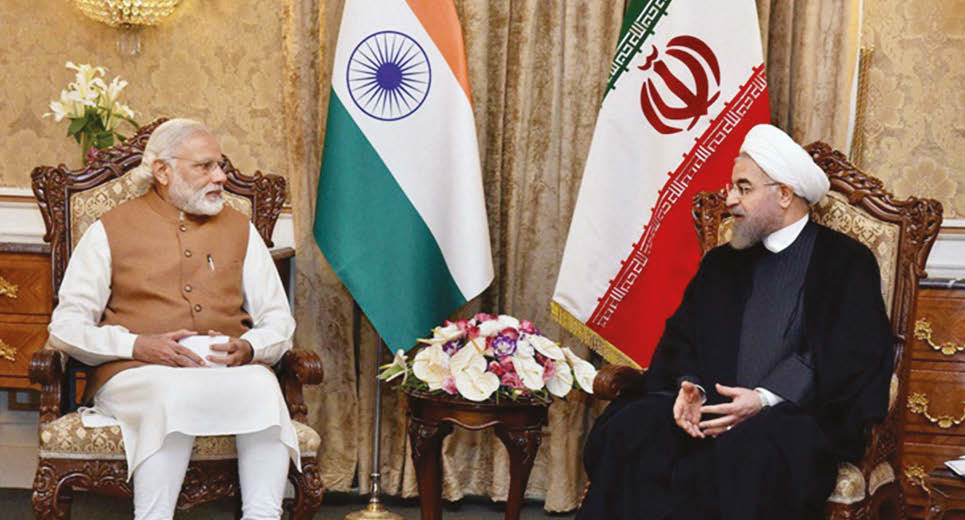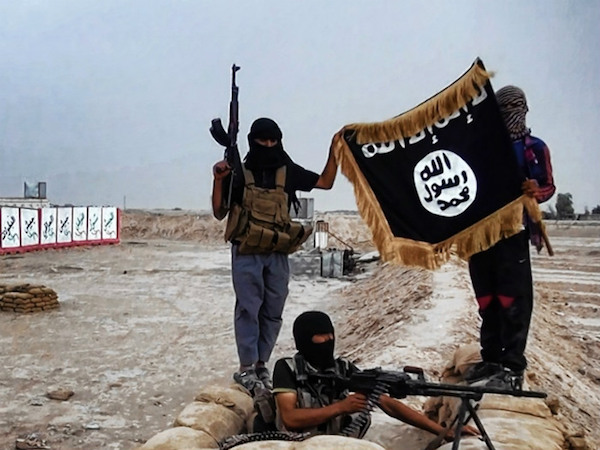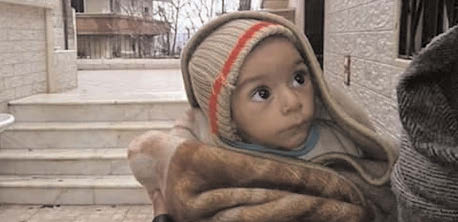
TEHRAN (TIP): Under the ornate chandeliers inside Saadabad palace’s atrium, Iranian President Hassan Rouhani by his side, Prime Minister Narendra Modi on May 23 quoted a Persian couplet by Mirza Ghalib to describe India‘s ties with Iran: “Once we make up our mind, the distance between Kaashi and Kaashan is only half a step.”
Looking on with a broad smile was Iranian Foreign Minister Javad Zarif and other officials standing behind the two leaders. This scene captured in a nutshell what the day’s meeting between Modi and Rouhani had achieved. Minutes earlier, India and Iran signed the “historic” Chabahar port agreement, which has the potential of becoming India’s gateway to Afghanistan, Central Asia and Europe. Later, Afghanistan President Ashraf Ghani joined the two leaders and a trilateral transit agreement was signed.
The two sides did not stop there. Mindful of the threat to peace and stability in the region, they also agreed to cooperate on “intelligence-sharing” to combat “terrorism“, “drug trafficking” and “cyber crime”. “Due to the importance of stability and security in the region, especially in countries like Afghanistan, Iraq, Syria and Yemen, a big problem called terrorism is running rife and rampant in the region. The two countries discussed political issues as well, and how they can cooperate on intelligence-sharing, their fight against terrorism and extremism, and how they can contribute towards peace and stability in the region,” Rouhani said. Modi, who told Rouhani that “leadership and the clarity of your vision have deeply impressed me”, said, “India and Iran also share a crucial stake in peace, stability and prosperity of the region. We also have shared concerns at the spread of forces of instability, radicalism and terror in our region. We have agreed to consult closely and regularly on combating threats of terrorism, radicalism, drug trafficking and cyber crime. We have also agreed to enhance interaction between our defense and security institutions on regional and maritime security.”
However, the centerpiece of their talks was Chabahar port, described by Rouhani as “strategic” at least twice. “Considering the fact that Iran is very rich in energy and the fact that India possesses very rich minds, so considering that they have a strategic port, the port of Chabahar, various important industries like the production of aluminum, petro chemicals, steel are the ones on which (the two countries) can have vast cooperation,” he said. With all the investments that are going to be made in the development of Chabahar port and considering the credit lines that are going to come from India, Rouhani said that “this very strategic port can very well turn into a very big symbol of cooperation between the two great countries”. However, Rouhani, mindful of Pakistan’s sensitivities, made it clear, “Today’s agreement is not against any other country.” He added that other countries are also welcome to participate in the initiative to develop Chabahar. Modi, without mentioning Pakistan, said, “Today, the watch-words of international ties are trust not suspicion; cooperation not dominance; inclusivity not exclusion. This is also the guiding philosophy and driving spirit of the Chabahar agreement.” Modi said the bilateral agreement to develop the port and related infrastructure, along with availability of about $500 million from India for this purpose, is an “important milestone”. “This major effort would boost economic growth in the region,” the PM said. Making a pitch for improved economic ties, Rouhani said, “This visit comes at a time when we have managed to conclude the nuclear deal and at a time when sanctions are gone… the ground is prepared more than ever for furthering our economic cooperation…” “Today, we have this chance to develop relations further to be even more beneficial to the people of our two countries,” he said. In this context, the Iranian President pointed out the challenges arising out of banking channels, which is preventing India from paying the full $6 billion of past dues from oil exports. Modi, on his part, said that India and Iran are not new friends. “Our dosti is as old as history,” he said.
“We can never forget that Iran was among the first countries to come forward in support when an earthquake struck my state, Gujarat, in 2001. Similarly, India is proud to have stood with the people of Iran during your difficult times. I compliment the leadership of Iran for their far-sighted diplomacy,” Modi said. The two sides signed a total of 12 of agreements on economy, trade, transportation, port development, culture, science and academic cooperation. In this context, Rouhani said, “Since India has made many advancements in new and high technologies, like ICT, biotech, nanotech and aerospace, today we made a decision to bring our academics, universities, technological and scientific partners closer to each other.” Earlier in the day, Modi was accorded a ceremonial welcome at the Saadabad palace’s Jomhouri building. Rouhani hosted a lunch and then they moved to the palace’s Talar building where they, along with Ghani, signed the trilateral transit pact.





Be the first to comment